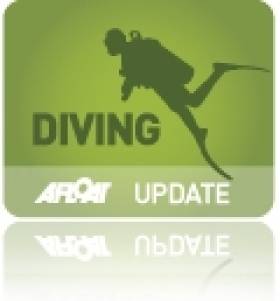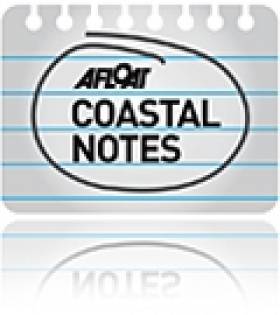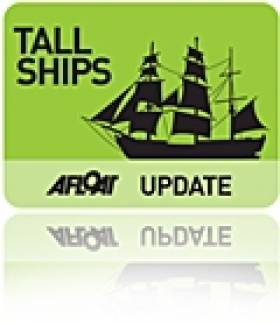Displaying items by tag: Second World War
Video Shows Divers Exploring Carinthia Wreck Off Donegal
#DIVING - WorldIrish have done it again with another great video find - this time following a team of divers off Donegal as they explore the wreck of the RMS/HMS Carinthia.
On 6 June 1940, during the Second World War, the transatlantic steam-powered cruise liner turned armed merchant ship was sunk by a German U-boat off Tory Island.
The video above shows some of the sights seen by Michael McVeigh and his diving team, including the ship's bow, the anchor telegraph and its wartime addition 6" gun.
New Book Documents History of Down Coastal Towns
#COASTAL NOTES - A new book detailing the "colourful history" of Helen's Bay and Crawfordsburn in north Down has been launched, the News Letter reports.
Twixt Bay & Burn features a number of rare photographs among interesting and little-known facts about the coastal area from the 17th century to today.
Also documented in its pages are the memories of over 50 residents going back to the 1920s, highlighting the area's contributions to the Second World War effort.
Robin Masefield, who compiled and edited the book, described it as a "labour of love".
The News Letter has much more on the story HERE.
US Cutter Eagle Returns to Home Port After Europe Voyage
The US Coast Guard's training barque Eagle returned to her home port of New London, Connecticut last week after a summer-long voyage to Europe.
Last May the ship and its crew paid a visit to Waterford ahead of this year's Tall Ships Races, where it met a contingent of Connecticut residents, before sailing on towards Hanover, Germany where she was first constructed 75 years ago.
Other ports of call included London, Reykjavik, Halifax in Nova Scotia and a final stop in New York City.
"The cadets had an incredible chance to sail the Atlantic as it was meant to be sailed," Captain Eric Jones told Connecticut's The Day.
The captain noted that it was also a voyage of remembrance, referencing the history of the ship - which the US received in reparations after the Second World War - and the laying of a wreath to memorialise the Coast Guard cutter Alexander Hamilton, torpedoed by a German U-boat off the Icelandic coast in January 1942.
The Day has much more on the story HERE.
Antrim Sping Cleaners Find Riverbed Bomb
Inland Waterways Spring cleaners at Sixmilewater River in Co Antrim got the surprise of their lives last weekend when a Second World War mortar shell was discovered in the riverbed.
Volunteers for Big Spring Clean Week had already picked it up from the water, thinking it at first to be a piece of metal piping, before they realised what they really had on their hands.
The Belfast Telegraph reports that the shocking find sparked a security alert for most of the day. The nearby Dublin Road was closed while army bomb disposal experts removed the device for examination.
The bomb was described a being 20 inches long, "torpedo-shaped" and "pale green".
It joined a list of random items including a bicycle, three scooters, golf clubs and a taxi sign that were retrieved from a single 100m stretch of the river near the Antrim Forum.



























































